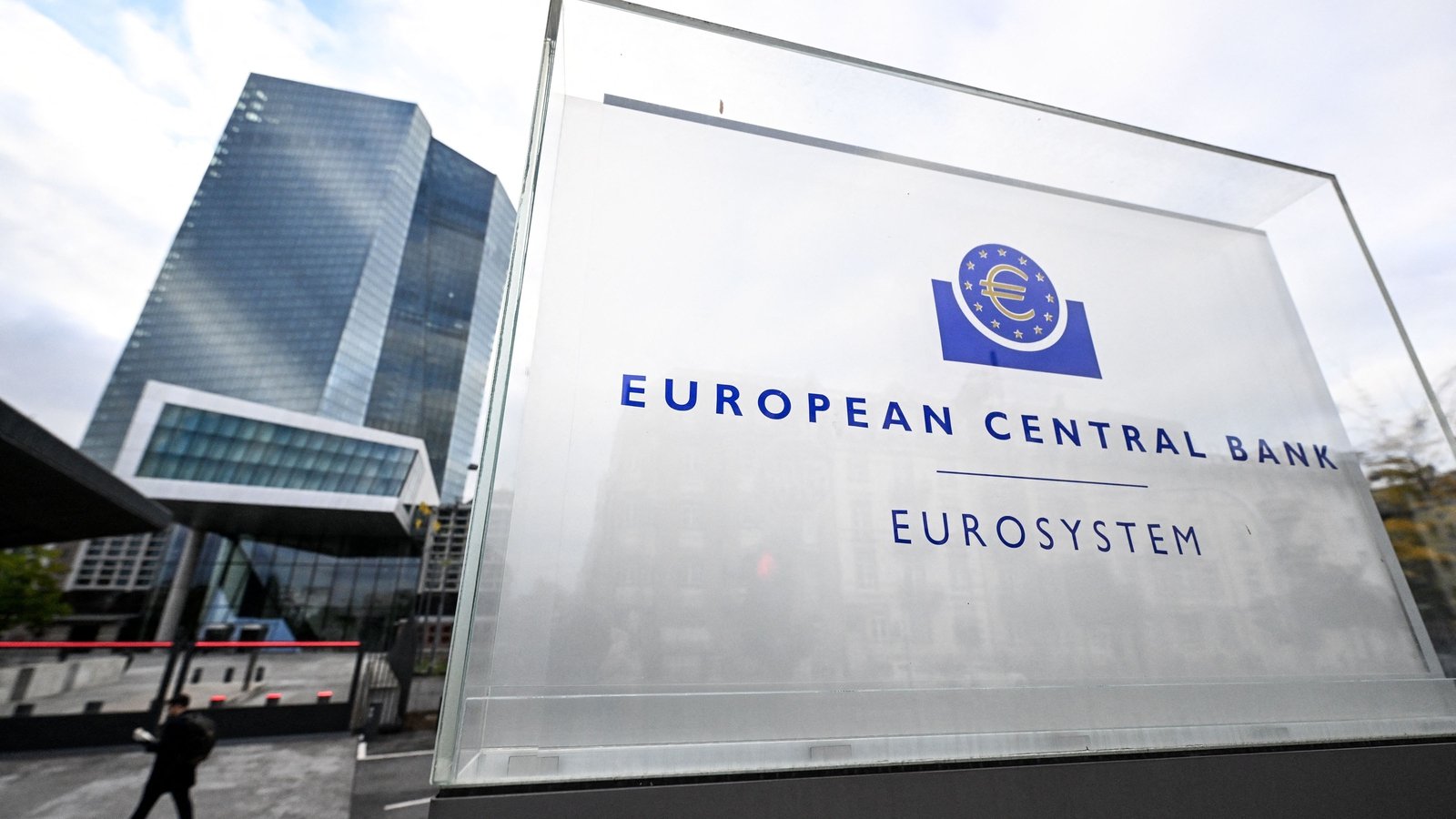Bussiness
ECB interest rate cut expected, after hikes since 2022

When the governing body of the European Central Bank (ECB) meets in Frankfurt today, a quarter of a percent cut in interest rates is widely expected to be agreed.
It will come after ten interest rate hikes since July 2022.
The monthly mortgage payment is generally the most significant household expenditure for homeowners in Ireland. It is a payment that has risen substantially for many over the last two years thanks to those interest rate increases from the ECB.
In the 12 months to April, mortgage interest payments in Ireland grew by 21% according to the Central Statistics Office. That was on top of a 41% increase between April 2022 and April 2023. A clear demonstration of how interest rate hikes hurt mortgage holders.
But from today a change is coming. Right now the ECB’s deposit rate is 4%. That is expected to drop to 3.75% following the bank’s governing council June monetary policy meeting taking place in Frankfurt. It will have an immediate knock-on effect on the banks main refinance rate of 4.5%.
It is a cut that has been well signaled in advance by senior members of the bank including President Christine Lagarde and ECB Chief Economist, and former governor of the Irish Central Bank Phillip Lane.
Mr Lane spoke of the impeding cut in a recent speech at the IIEA in Dublin.
“It has been reasonable for us in the last few weeks to basically signal that barring major surprises, many people on the Governing Council, including myself this morning, have indicated there may be enough in the data to say we can remove the top layer of restrictiveness.”
So now the day has arrived what can mortgage holders expect? Those on trackers will immediately feel the benefit according to Martina Hennessy, CEO of mortgage sales and switching website doddl.ie.
“It is widely expected that the ECB will announce a 0.25% rate reduction this Thursday. This will offer some relief to tracker mortgage holders, resulting in a decrease in monthly repayments by just over €13 per month for every €100,000 outstanding over a 15-year term.”
That’s a cool saving of €470 per annum for a tracker holder who borrowed €300,000 and will be welcome news. However, payments on that mortgage are still €4,000 higher per annum than they were in 2021.
The picture for non-tracker mortgage holders will be more nuanced. Many who have mortgages with pillar lenders did not see all of the rate increases passed on over the last two years. It could be the same with rate reductions according to Joey Sheahan Head of Credit with mymortgages.ie.
“Borrowers with fixed and variable rate mortgages have rates that are not directly linked to the ECB rates. However, the overall cost of funds for all banks will be reduced and we would anticipate there will be downward pressure on all rates,” he said.
Regarding non-bank lenders in the Irish market, some of whom charge interest of up to 7%, Mr Sheahan said they were more directly affected when the ECB rates increased, so the rate reduction will take pressure off them.
“They should hopefully be able to pass this saving to customers,” he said.
Whatever decisions lenders take on the back of todays ECB decision, it will likely be closely watched by the Government. Both Taoiseach Simon Harris and Minister for Finance Michael McGrath have already publicly urged the banks to pass on savings to hard pressed mortgage holders still struggling with their costs.
While today’s cut now seems to be a certainty, the question of further cuts immediately arises. The ECB’s stated aim of getting inflation back to 2% is close to being achieved. Inflation in the Eurozone in April was 2.4% . Although governing council members remain wary about committing to anything beyond today’s change, there is an expectation that further are on the cards.
Conall Mac Coille, Chief Economist with Bank of Ireland said: “Market expectation is for one or two further cuts by the end of the year, ending up at 3.25% or 3.5%
“We are leaning towards 3 rate cuts in total, Thursdays, and two more by year end,” he said.
“Inflation looks to be on the way down but the ECB could still take a cautious approach, particularly if service prices inflation remains persistently high.”
Martina Hennessy agrees.
“The ECB is set to remain cautious in its approach to reducing rates, continuing to monitor inflation closely. Further meetings of the European Monetary Policy Committee are scheduled for September and December where they will review inflation data and the impact of the June reduction.”










